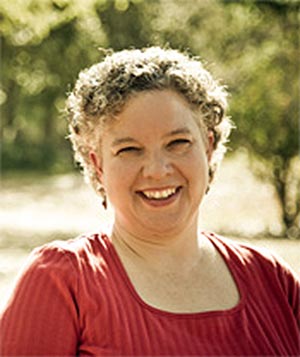St. Luke's United Methodist Church, Orlando, is on a mission to serve its surrounding neighborhood by helping low income residents make their way out of poverty. Key to their efforts is Circles USA, a national transformational approach that joins volunteers and community leaders with families wanting help to make a better life.
"The Circles program is based on really working to create stability for low income families," said Lynnette Fields, the 20-year executive director of missions at St. Luke's. "St. Luke's increased its commitment to work in the community and had a vision in 2012 saying we would end poverty one neighborhood at a time."
Circles® USA is a community-based initiative created in 2007-2008 in which both low and middle income individuals work together to help families and communities thrive, Fields said. Families who live at or near the poverty line are empowered to achieve individual goals relating to economic stability, as well as to help solve community problems. St. Luke's is the lead organization in Orlando for their Circles program, called Circles Orange County, and has a contract with the national organization.
 |
| Lynnette Field, Executive Director of missions, St. Luke UMC. |
"It is hard in most cities for families to have enough money for rent (or mortgage), transportation, food, child care and health care… it is hard to pay for just those five things let alone furniture or clothes," Fields said. If the family's entire income is claimed by the bare necessities, public and private benefits are needed. "The aim (of the program) is to raise income, lower debt, decrease dependency on public and private benefits and raise assets," Fields said.
The program model includes a circle leader who is a lower income level resident desiring to work toward economic stability and security for his or her family. Extensive training teaches how to work on their plan goals, Fields said.
Circle allies are middle or upper middle income volunteers who share with the leader in his plan. Volunteers are selected to capitalize on their life experiences and/or professional skills. "Matching activities and desires of the leaders and putting two or three allies with a circle leader, that is a matched circle," Fields said. "We have multiple circles all meeting together as a community."
The program is working. A recent graduation honored five leaders who raised their incomes, lowered debt and decreased reliance on public benefits, Fields said. Many in the program are taking online classes or getting professional certifications, resources they might need to have the tools of their trade. Three circle leaders have become allies for another group sharing what they have accomplished.
"St. Luke's wanted to help children living in poverty and found the best way was to concentrate in a neighborhood and helping families to end poverty one family and one neighborhood at a time," Fields said. "We (St. Luke's UMC) made a commitment. We want the majority of allies to come from St. Luke's congregation as well as the financial commitment. The church agreed to do the funding for the first four years to get it launched…over the long-term you have to keep in mind how many people you are impacting.
"It is a win, win, win, win easily," Fields added.
Brenda Eggert Brader, Florida AC website
One of seven apportioned giving opportunities of The United Methodist Church, the World Service Fund is the financial lifeline to a long list of Christian mission and ministry throughout the denomination. Through the Four Areas of Focus churches are engaging in ministry with the poor which encourages them to be in ministry with their communities in ways that are transformative.





